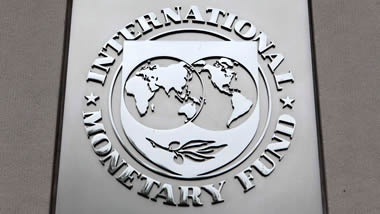The International Monetary Fund has demanded action for Nigeria to exit the Financial Action Task Force grey list, commending the country for the economic reforms that have led to a deceleration of inflation and provided stability in the foreign exchange market.
This was disclosed in its latest Article IV Consultation on the country, which affirmed that Nigeria has made considerable progress on the back of reforms, which it said have restored financial discipline and credibility.
Nigeria got on the grey list of the FATF in February 2023 due to increased capital inflows and deficiencies in combating money laundering. The grey list is a designation for jurisdictions under increased monitoring by the Financial Action Task Force due to gaps in their anti-financial crime regimes.
As stated in the IMF Executive Board Assessment, the Fund “welcomed the progress made in strengthening the AML/CFT framework, Anti-Money Laundering and Combating the Financing of Terrorism. It stressed the importance of resolving remaining weaknesses to exit the FATF grey list”.
The Fund added that significant challenges remain in inflation, though declining, infrastructure deficits, insecurity, and fiscal slippages, which it said could derail progress.
IMF “highlighted the importance of tackling security; red tape; agricultural productivity; infrastructure gaps, including boosting electricity supply; as well as improved health and education spending; and making the economy more resilient to climate events.”
The report said the reforms “should help establish a strong foundation for sustained and inclusive growth”.
The IMF also noted that in light of the challenges posed by an evolving global economic landscape, “nimble policymaking is needed to navigate this fast-moving and volatile environment. Strong policy coordination and communication are key.”
The IMF also noted that a critical pillar of Nigeria’s economic reset has been the restoration of Central Bank independence. After years of excessive fiscal influence for deficit financing, the Central Bank of Nigeria has curtailed the use of the “Ways and Means” facility, an emergency funding channel that ballooned beyond statutory limits. As of April 2025, these advances have been cut by nearly 90 per cent, demonstrating what the IMF called the “discontinuation of deficit monetisation” and a step to “strengthen central bank governance to set the institutional foundation for inflation targeting.”
Headline inflation, which peaked above 40 per cent, dropped to 22.9 per cent in May 2025. The IMF noted that the Central Bank is “appropriately maintaining a tight monetary policy stance, which should continue until disinflation becomes entrenched.”
On FX reforms, the IMF Executive Board Assessment said the reforms supported price discovery and liquidity.
The CBN, led by Governor Olayemi Cardoso, dismantled the long-standing multiple exchange-rate regime, replacing it with a “willing-buyer, willing-seller” framework supported by a digital trading platform (B-Match), and it has provided some stability for the business environment.
The IMF noted, “Gross and net international reserves increased in 2024, with a strong current account surplus and improved portfolio inflows. The FX premium, or gap between official and parallel markets, has fallen from over 60 per cent to below three per cent. FX inflows have surged to $6.9 bn in Q1 2025, and external reserves climbed to a peak of $40.9 bn at the end of 2024, providing over eight months of imports – well above benchmark thresholds. Reforms to the FX market and foreign exchange interventions have brought stability to the naira.”
The Fund “recognised actions to strengthen the banking system, including the ongoing process of increasing banks’ minimum capital”, as stated in the IMF Executive Board Assessment. It also “welcomed the authorities’ efforts to boost financial inclusion and promote capital market development.”
The CBN’s recapitalisation plan will see banks’ minimum capital raised significantly by March 2026. This move is designed to ensure banks can absorb future shocks, deepen credit access, and support the planning for a $1 tn Nigerian economy.
In a statement on Wednesday, the CBN governor, reflecting on the IMF report, said, “At a time of global uncertainty, this assessment reaffirms that responsible, forward-looking policy choices matter. It affirms that Nigeria is regaining credibility, anchoring expectations, and laying the foundation for inclusive, long-term growth. It is both an encouragement to stay the course and a reminder that resilience and prosperity require continued discipline and vision.”
The Minister of Finance and Coordinating Minister of the Economy, Wale Edun, expressed appreciation for the IMF’s recognition of the Federal Government’s ongoing reform efforts and the tangible progress achieved over the past two years. These reforms have contributed to notable improvements in Nigeria’s fiscal and external positions, bolstering investor confidence and strengthening the resilience of the economy.
In the statement signed by the Director of Press and Public Relations, FMF, Mohammed Manga, “The Minister also welcomed the Fund’s acknowledgement of advancements in the agricultural sector, particularly increased food production, which has contributed to moderating inflation. As of May 2025, headline inflation eased to 22.9 per cent, while food inflation declined to 21.4 per cent, both improvements from the higher levels recorded during the IMF mission.”
On the downside risks which the IMF highlighted, particularly uncertainties in the global economy, Edun affirmed the government’s proactive stance. He emphasised that the implementation of the 2025 budget is being carried out with a focus on safeguarding reform gains and ensuring economic stability.
“The government continues to monitor developments in the international oil market and global trade environment and is taking responsive measures to mitigate potential risks while maintaining momentum toward inclusive growth.















